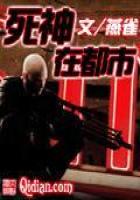"Yes, I understand," sighed the Cardinal. "It is well you feel so. In Our Lord's eyes I think it will mitigate the great sin. For your own sake you had better confess to Father Giorgio, not to Father Guillermo. Father Giorgio will not misinterpret your feelings and your reasoning. He will see the truth. Father Guillermo is less perceptive, and might deem your true repentance debatable." A faint smile crossed his thin mouth like a wispy shadow. "They, too, are men, my Ralph, those who hear the confessions of the great. Never forget it as long as you live. Only in their priesthood do they act as vessels containing God. In all else they are men. And the forgiveness they mete out comes from God, but the ears which listen and judge belong to men."
There was a discreet knock on the door; Cardinal Vittorio sat silently and watched the tea tray being carried to a buhl table. "You see, Ralph? Since my days in Australia I have become addicted to the afternoon tea habit. They make it quite well in my kitchen, though they used not to at first." He held up his hand as Archbishop Ralph started to move toward the teapot. "Ah, no! I shall pour it myself. It amuses me to be 'mother.""
"I saw a great many black shirts in the streets of Genoa and Rome," said Archbishop Ralph, watching Cardinal Vittorio pour. "The special cohorts of II Duce. We have a very difficult time ahead of us, my Ralph. The Holy Father is adamant that there be no fracture between the Church and the secular government of Italy, and he is right in this as in ail things. No matter what happens, we must remain free to minister to all our children, even should a war mean our children will be divided, fighting each other in the name of a Catholic God. Wherever our hearts and our emotions might lie, we must endeavor always to keep the Church removed from political ideologies and international squabbles. I wanted you to come to me because I can trust your face not to give away what your brain is thinking no matter what your eyes might be seeing, and because you have the best diplomatic turn of mind I have ever encountered."
Archbishop Ralph smiled ruefully. "You'll further my career in spite of me, won't you! I wonder what would have happened to me if I hadn't met you?" "Oh, you would have become Archbishop of Sydney, a nice post and an important one," said His Eminence with a golden smile. "But the ways of our lives lie not in our hands. We met because it was meant to be, just as it is meant that we work together now for the Holy Father."
"I can't see success at the end of the road," said Archbishop Ralph. "I think the result will be what the result of impartiality always is. No one will like us, and everyone will condemn us."
"I know that, so does His Holiness. But we can do nothing else. And there is nothing to prevent our praying in private for the speedy downfall of 11 Duce and Der Fuehrer, is there?"
"Do you really think there will be war?"
"I cannot see any possibility of avoiding it."
His Eminence's cat stalked out of the sunny corner where it had been sleeping, and jumped upon the scarlet shimmering lap a little awkwardly, for it was old.
"Ah, Sheba! Say hello to your old friend Ralph, whom you used to prefer to me."
The satanic yellow eyes regarded Archbishop Ralph haughtily, and closed. Both men laughed.
Drogheda had a wireless set. Progress had finally come to Gillanbone in the shape of an Australian Broadcasting Commission radio station, and at long last there was something to rival the party line for mass entertainment. The wireless itself was a rather ugly object in a walnut case which sat on a small exquisite cabinet in the drawing room, its car-battery power source hidden in the cupboard underneath.
Every morning Mrs. Smith, Fee and Meggie turned it on to listen to the Gillanbone district news and weather, and every evening Fee and Meggie turned it on to listen to the ABC national news. How strange it was to be instantaneously connected with Outside; to hear of floods, fires, rainfall in every part of the nation, an uneasy Europe, Australian politics, without benefit of Bluey Williams and his aged newspapers. When the national news on Friday, September 1/, announced that Hitler had invaded Poland, only Fee and Meggie were home to hear it, and neither of them paid any attention. There had been speculation for months; besides, Europe was half a world away. Nothing to do with Drogheda, which was the center of the universe. But on Sunday, September 3rd all the men were in from the paddocks to hear Father Watty Thomas say Mass, and the men were interested in Europe. Neither Fee nor Meggie thought to tell them of Friday's news, and Father Watty, who might have, left in a hurry for Narrengang.
As usual, the wireless set was switched on that evening for the national news. But instead of the crisp, absolutely Oxford tones of the announcer, there came the genteel, unmistakably Australian voice of the Prime Minister, Robert Gordon Menzies.
"Fellow Australians. It is my melancholy duty to inform you officially that in consequence of the persistence by Germany in her invasion of Poland, Great Britain has declared war upon her, and that, as a result, Australia is also at war . . . .
"It may be taken that Hitler's ambition is not to unite all the German people under one rule, but to bring under that rule as many countries as can be subdued by force. If this is to go on, there can be no security in Europe and no peace in the world .... There can be no doubt that where Great Britain stands, there stand the people of the entire British world .... "Our staying power, and that of the Mother Country, will be best assisted by keeping our production going, continuing our avocations and business, maintaining employment, and with it, our strength. I know that in spite of the emotions we are feeling, Australia is ready to see it through. "May God, in His mercy and compassion, grant that the world may soon be delivered from this agony."















